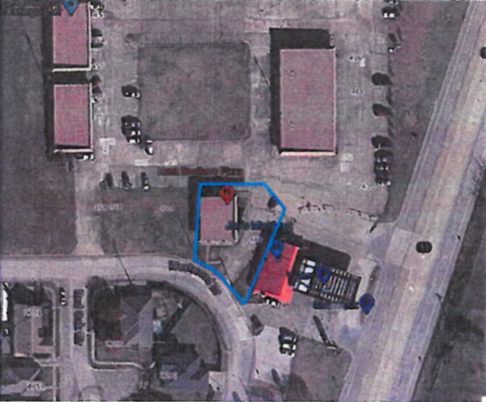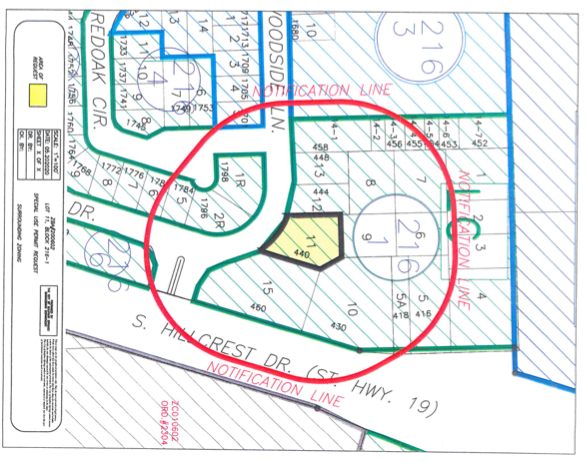P&Z Recommends Special Use Permit For Cosmetic Tattooing For New Salon
Sulphur Springs Planning and Zoning Commission Monday evening agreed to recommend to the Zoning Board of Adjustments that a new business be granted a special use permit to perform cosmetic tattooing. Also discussed at the meeting was the possibility of proposing ordinances which would define cosmetic tattoos/permanent makeup and identify which districts to permit them in, and which would allow certain accessory dwelling units.
Special Use Permit
Brandy Estes requested a special use permit for 440 South Hillcrest Drive, where the cosmetologist plans to open a new salon to offer a variety of services including hair, nails, lash extensions, tanning, facials, microblading and waxing. Because cosmetic tattooing is licensed through the state the same as regular tattooing, a special permit is required.

Estes was previously approved to operate at Southern Roots on Broadway Street. Estes said she’d been considering starting her own business for a while. When salons were closed at the order of the Governor due to COVID-19, Estes decided it would be a good time to act on it.
Fourteen letters were sent to property owners within 200 feet of 440 South Hillcrest Drive. City staff receive three letters. One letter came from a person who lives in Sherman but owns property in the vicinity who is “in favor of a local salon offering cosmetic microblading and tattooing,” and in “agreement with welcoming this high end spa.”
Three others (2 from the same residents and address) indicated they are not in favor of allowing the procedures. were received from Red Oak Circle residents. Charles and Jean Darr asked hours of operation and who else besides Estes would be working at the site. The Darrs also indicated concern that a salon would increase traffic significantly through the subdivision, where barricades already restrict motorists from entering due to the number of 18-wheeler drivers who turn around in front of the addition.
Mr. Darr spoke on the topic at the P&Z Commission meeting Monday to verbally express these concerns as well, especially those regarding traffic issues that might arise and
She plans to open BackLash salon in Woodbridge Square, behind the gas station, from 8 a.m. to 5 p.m. Monday-Friday and from 8 to noon Saturday, by appointment only. So only the customer would be in the building with her, and the door would be locked until time for that individual to leave an another to enter the building. She said she’d eventually like to add another hair stylist. She said she typically sees 4-8 clients a day, and one on Saturday.
Don Roundtree asked regarding zoning for the use and if the special use permit would be restricted to microblading and cosmetic tattooing and to the applicant or if it would open the door for additional types of tattooing at that location.

Community Development Director Tory Niewiadomski said the permit would be for cosmetic tattooing, with specialized microblading only, and it would be specific to the applicant at that address.
Craig English noted the area is not zoned for body tattooing. Unless an ordinance is passed approving cosmetic tattooing and microblading, permission must be sought from the Planning and Zoning Commission and Zoning Board of Adjustments before it can be approved.
The process is different from regular tattooing in that it doesn’t go as deep in. Cosmetic tattooing places pigment just under the skin and the process Estes would perform would not be permanent as it only lasts about 3 months.
The Planning and Zoning Commission agreed to recommend to the Zoning Board of Adjustments a special use permit for Brandy Estes for BackLash Salon. The ZBA is slated to consider granting the special use permit for microblading at tonight’s meeting (Tuesday, June 16, 2020), which begins at 5:30 p.m. at the Sulphur Springs Municipal Building, 201 North Davis St.
Cosmetic Tattoo, Accessory Dwelling Unit Ordinances
Niewiadomski also asked the Planning and Zoning Commission to consider a date for a public hearing next month regarding proposed ordinances regarding cosmetic tattooing/permanent make up and accessory dwelling units.
The ordinance for cosmetic tattooing would define the term and identify which zoning district to permit the service in. This was drafted after the city received multiple requests over the last 3 years from salons for special use permits to be able to provide cosmetic tattoos and permanent make-up. City staff proposes allowing use of these items in commercial zoning districts or in multi-family zoning if performed as an ancillary use within a beauty shop or salon, thereby eliminating the requirement for a special use permit for these services.
Niewiadomski said city staff’s recommendation is to define cosmetic tattoo/permanent makeup as:
“a cosmetic technique which employs tattoos (permanent pigment of the dermis) as a means of producing designs that resemble makeup, such as eyeliner and other permanent enhancing colors to the skin of the face, lips and eyelids. It is also used to produce artificial eyebrows and to disguise scars and blemishes to the skin to provide a more natural appearance.”
Niewiadomski also asked the P&Z Commission to consider a public hearing for recommendation of an ordinance to allow accessory dwelling units, provided they meet certain requirements.
An ADU as proposed is defined as:
“a smaller, secondary home on the same lot as a primary dwelling. ADUs are independently habitable and provide the basic requirements of shelter, heat, cooking and sanitation. They can be attached to the primary structure or detached units.“
Under this proposed ordinance, existing ADUs would be grandfathered in, allowing property owners to continue as a legal non-conforming use if they are unable to meet the new ordinance standards.
Any ADU that did match the ordinance requirements would have to go before the ZBA to request a variance.
The ordinance would include a provision prohibiting parking on grassy area, but instead to be parked on an improved or paved surface.
The owner of a property with a new ADU would be required to live in one of the structures, preventing the entire property from becoming a full rental property.
In most instances, existing portable buildings would not met appearance standards and design criteria stipulated in the ordinance and could not be converted to an ADU under the proposed ordinance Niewiadomski noted.
The P&Z Commission agreed to a public hearing next month to hear comments regarding ADUs as well.





